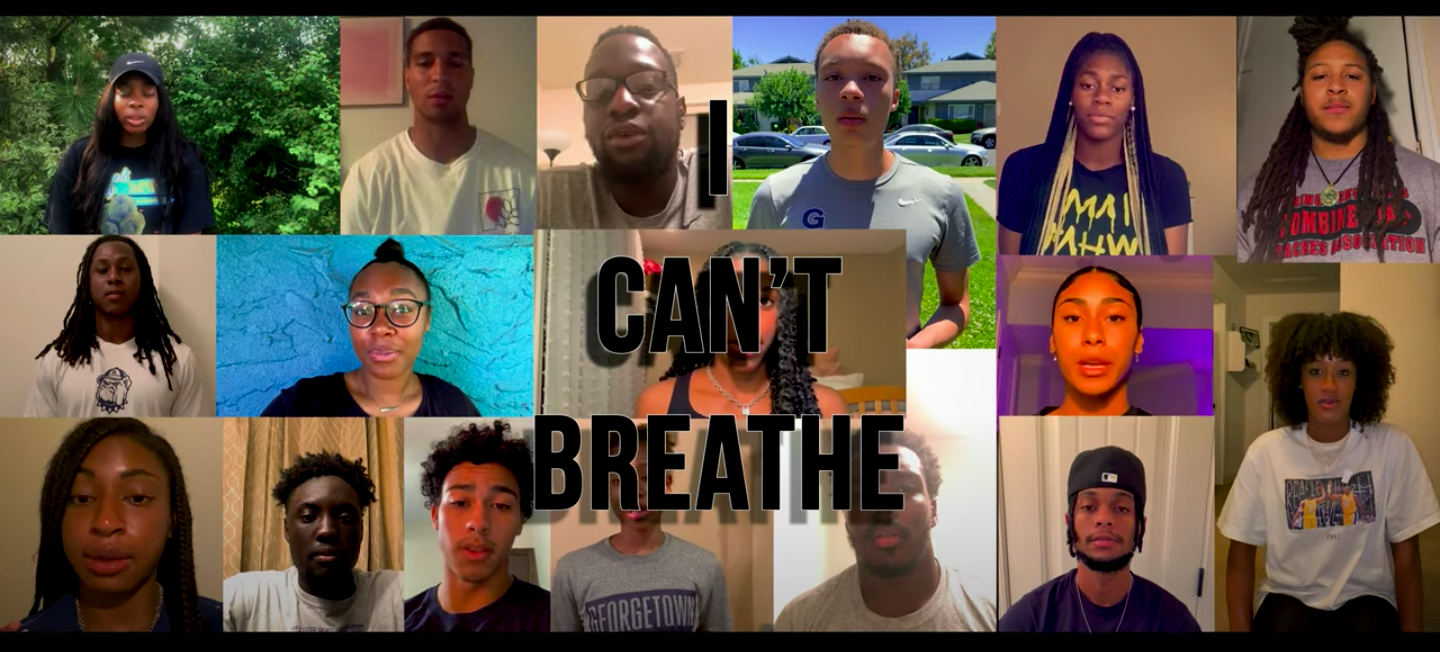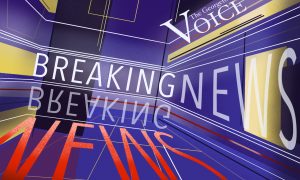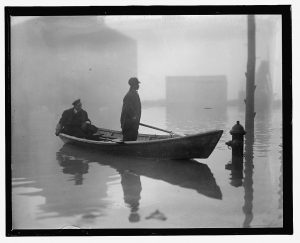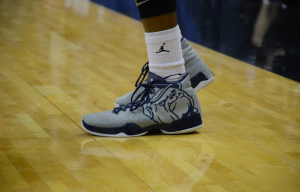As a wave of protests against police brutality and racial injustice continue and Georgetown grapples with instances of racism on its own campus, Georgetown Black student-athletes have virtually united through the creation of the university’s first Black Student-Athlete Coalition (BSAC).
BSAC was officially established in early June and serves to instill community within Georgetown as well as amplify the voices of Black student-athletes. They released a statement on their Instagram that outlines the mission and aims of the organization.
“BSAC’s mission is to connect past and present Black student-athletes and forge a strong Hoya community,” the statement read. “BSAC intends to advocate to Georgetown Athletics for resources in advancement of and recognition for Black athletes.”
Members of BSAC expressed an increased feeling of urgency in regard to the official establishment of the organization.
“Now is the time. We have their attention, they’re listening to us, now is the time to make sure that we use our voice and create a space for the future,” Sari Cureton (SFS ’21), BSAC’s co-director of outreach, Student Athlete Advisory Committee representative and women’s basketball senior forward, said.
The idea of having an organization that advocated for Black student-athletes was previously considered years prior to BSAC’s official establishment according to multiple members. However, the heightened conversation about racial disparities over the past few months alone combined with increased virtual meetings due to the global pandemic caused Georgetown’s Black student-athletes to take action.
“Georgetown never had this before. They’ve never had a Black student-athlete group, affinity group. There is a sense of community within the Georgetown Athletics Department for Black student-athletes but there was never something official,” Rio Hope-Gund (COL ’21), BSAC board member, Diversity, Equity and Inclusion Committee representative in the Athletics Department and men’s soccer senior defender, said. “It’s perfect timing. It’s long overdue but it’s definitely better that we have it now.”
According to Cureton, the recent killings of George Floyd and Breonna Taylor by police as well as the murder of Ahmaud Arbery served as the catalyst for the official formation of BSAC.
“With everything that happened plus being at home with the pandemic, it was definitely like our life was on pause anyways,” Cureton said. “And then suddenly we were faced with another tragedy in our community.”
Whitney Maddox (SCS ’10, MA ’19), staff advisor to BSAC, wrote in an email to the Voice that Black student-athletes expressed an interest in organizing the group during an affinity space she facilitated for Black athletes to discuss the current racial injustices harming the Black community.
“It was during that first affinity space that the Black athletes started to name the need to be in community with those that looked like them, and could fully understand the pain that was being inflicted on Black bodies,” Maddox wrote. “During that first affinity space the students indicated they wanted to start BSAC and asked if I would serve as their Staff Advisor to BSAC.”
Hope-Gund provided his perspective on the change he hopes the group is able to implement for the Athletic Department in the future.
“Creating a community space, a safe space, where Black student-athletes at Georgetown feel seen and feel heard and feel respected,” Hope-Gund said. “Because I think it’s a common theme that we don’t feel that way within our community.”
Since its creation, the group has presented a list of demands to Athletic Director Lee Reed, established a constitution and executive board for the organization, and communicated their aims with all athletic coaches during a virtual meeting that took place on July 13.
“We went through a presentation with them and had action steps,” Lara Adekunle (NHS ’22), BSAC’s co-director of communications and volleyball junior middle blocker, said. “That was definitely a really, really, really good response from the coaches… most of them seemed to be on board.”
The list of demands they presented to Reed on June 12 addressed their concerns regarding the recruitment of more Black athletes, improvement of staff diversity, and allocation of rooms or safe spaces for Black student-athletes to express their experiences freely.
“These are conversations that we have to have because the people making the decisions don’t look like us,” Cureton said. “When you’re at a university that’s supposed to stand for inclusion…you need to act on that when you hire people.”
Adekunle addressed what she saw as a lack of support from Georgetown Athletics in regard to fostering relationships between current and former Black student-athletes.
“There’s just not enough unity. I barely know any Black athlete alumni,” she said. “I have to personally go through Georgetown’s overall Black alumni network. Athletics should definitely be having that already. We shouldn’t have to carry the burden on ourselves in trying to find these relationships.”
So far, the organization has primarily focused on gaining awareness and recognition from Georgetown as well as the greater D.C. community. In a recent testimonial video titled “I Can’t Breathe,” members of BSAC shared their personal experiences as Black student-athletes attending a predominantly white institution. The members presented the video to their coaches during the virtual meeting held in June, and later posted it on their social media platforms.
“The experiences that our Black student-athletes shared were not unfamiliar to many Black, Indigenous and other People of Color [BIPOC] living in White America,” Maddox wrote in an email to the Voice. “This video aims to shine a light on the racist encounters our Black athletes and other BIPOC students on-campus face in the classroom, in their sports and in life.”
BSAC’s social media accounts have gained attention and following from other members of the athletic community, Georgetown students, faculty and staff as well as external news outlets. The coalition reported receiving positive responses from individual student-athletes and coaches from University of California, Los Angeles as well as fellow D.C. institutions, American University and The George Washington University. Similar groups exist at Duke, the University of Minnesota, and the University of Southern California.
“It’s automatic for us to go to the Athletic Department for everything just because they have all the resources there,” Adekunle said. “But going forward, we’ve just realized more and more that we are really in control of our own narrative and our message that we want to release.”
The author of this article helped produce the video for BSAC. She is not a member of the organization.





